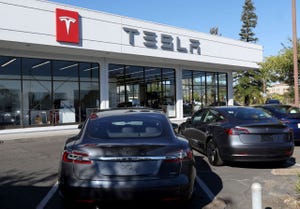AI-Powered Traffic-Management Adopted by MarylandAI-Powered Traffic-Management Adopted by Maryland
The system uses a combination of hardware components, AI and edge computing to retrofit signalized intersections

Less than two months after deploying its platform at five intersections in Baltimore, AI-based traffic-management startup NoTraffic has secured a contract to install it at gridlock-prone crossings across the state of Maryland.
The platform went live in Baltimore on Oct. 17 after “unexpected disruptions and rerouting” to reduce the resulting tie-ups.
The Tel Aviv-based company has now secured a statewide contract from the Maryland Department of Transportation (MDoT) with the help of Blackstar Diversified Enterprises, a traffic-control and safety systems integrator.
The system, which can be installed in less than two hours, uses a combination of hardware components, AI and edge computing to retrofit signalized intersections into a fully automated, cloud-connected hub, according to the company.
Specifically, plug-and-play IoT sensors are installed at human-eye level at the approaches to intersections, where they classify all road users — cars, trucks, bikes, public transit, emergency services and pedestrians — through a combination of machine vision and radar. This data is processed, anonymized and then streamed to the cloud for coordination across the city grid.
A control unit, installed in the traffic light, uses an AI optimization engine called the Mobility Operating System to analyze data from all approaches and optimize light timing to adjust traffic conditions in real-time, reducing gridlock and improving safety, according to the company.
The platform is operating in more than 30 states, including California, Texas, Pennsylvania, Colorado, Florida and Georgia, as well as parts of Canada.
"This approval by the Maryland Department of Transportation is a major milestone in NoTraffic's mission to transform traffic management," said Tal Kreisler, CEO and co-founder of NoTraffic. "Our ongoing deployments in Baltimore showcase the tremendous advantages that traffic technology provides.
“As roadways face increasing challenges like roadwork, accidents and weather disruptions, this approval paves the way for scaling our adaptable mobility platform nationwide, ensuring communities everywhere benefit from safer, more efficient infrastructure."
This article first appeared in IoT World Today's sister publication AI Business.
About the Author
You May Also Like








